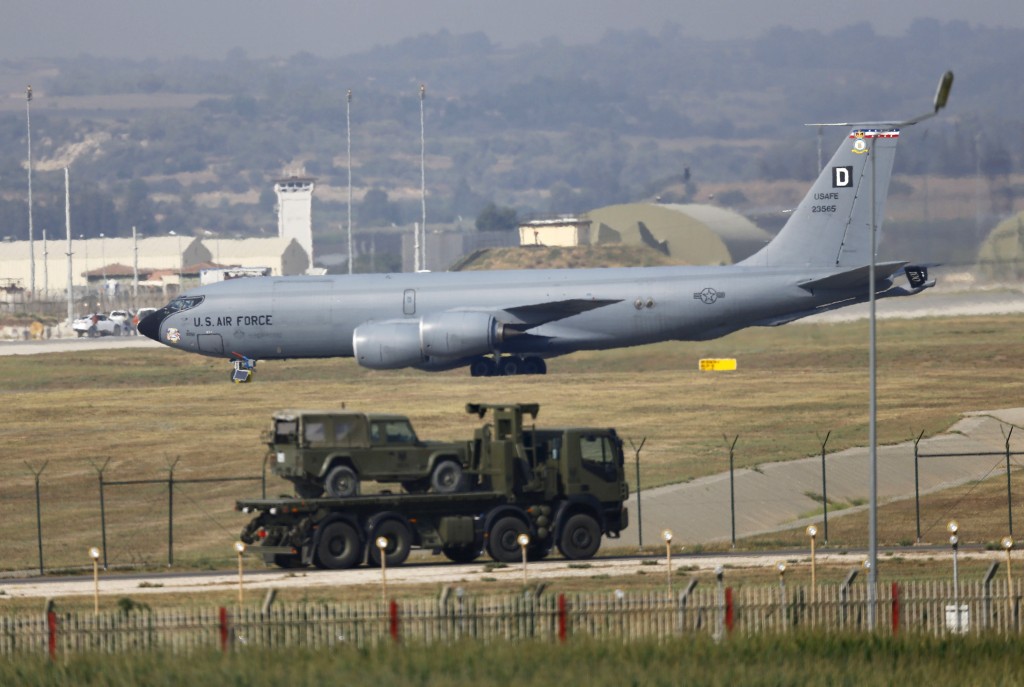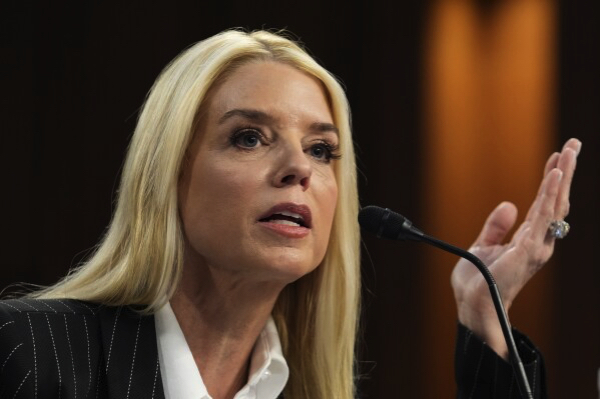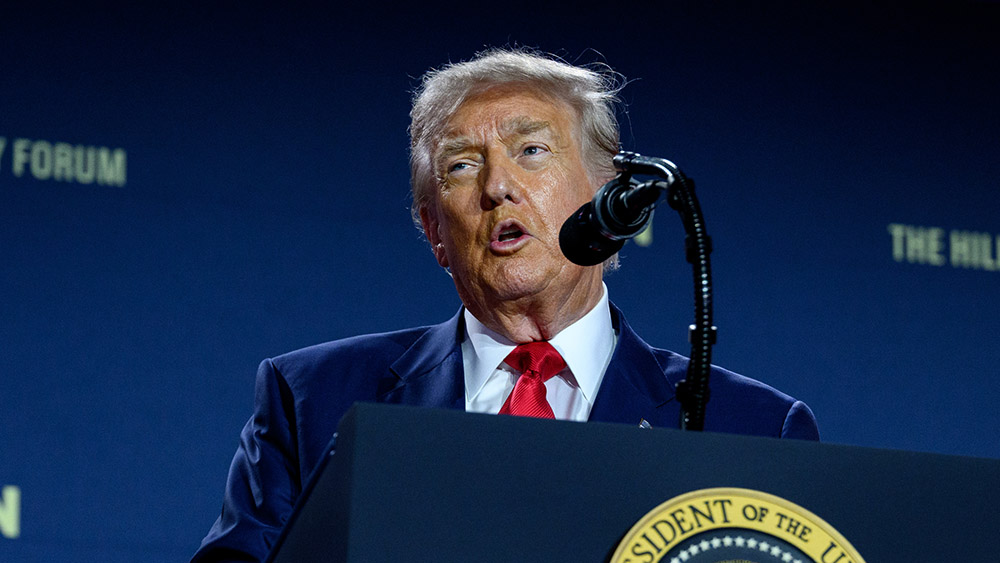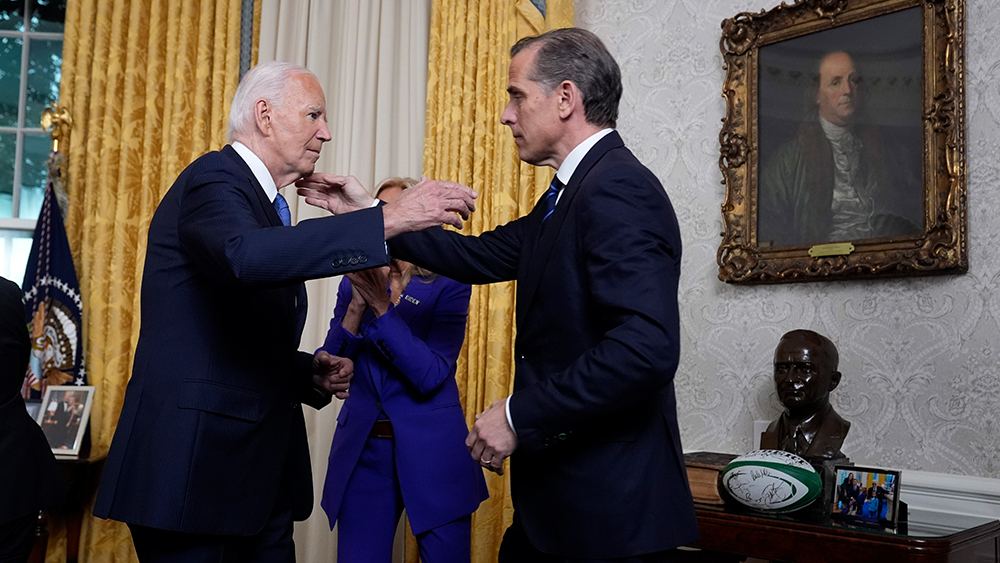U.K. security officials face probe after high-profile Chinese spy case collapses
10/13/2025 / By Zoey Sky

- A high-profile Chinese spy case in the U.K. has collapsed just before trial because prosecutors lacked a key piece of evidence. Two men, accused of spying for China, had their charges dropped.
- The case failed on a major legal technicality. To secure a conviction, prosecutors needed to prove the men passed information to an “enemy.” The government could not provide a formal statement confirming it officially classified China as a direct “threat” during the time of the alleged spying.
- The collapse has sparked a fierce political blame game. The opposition Conservative Party accuses the new Labour government of deliberately sabotaging the case to improve diplomatic and trade relations with China, which the government strongly denies.
- The incident has created a crisis of confidence in the U.K.’s national security system. Experts are astonished that such a serious case could fall apart over a basic procedural failure, raising questions about the competence and coordination between the government and prosecutors.
- The public is left with troubling questions. The failure suggests the government is either incapable of prosecuting serious security threats or is willing to drop them for political and economic convenience, damaging public trust.
A major political and legal storm is brewing in the United Kingdom following the spectacular collapse of a high-profile “Chinese spy” case, a debacle that has exposed deep fissures within the British government and raised serious questions about the integrity of its national security prosecutions.
Senior security officials are now set to face a formal investigation after prosecutors were forced to drop charges against two men accused of spying for China, citing a stunning lack of evidence just weeks before their trial was due to begin.
The case’s failure has ignited a firestorm of criticism, with lawmakers and security experts expressing outrage and demanding answers.
The case centered on Christopher Cash, a parliamentary researcher, and Christopher Berry, a financial analyst and teacher. Arrested in March 2023, the two men were formally charged in April with violating the Official Secrets Act by gathering and sharing “prejudicial information” with Beijing between 2021 and 2023.
However, the case began to unravel due to a critical legal requirement. For a conviction under the Official Secrets Act, the prosecution must prove that the information passed was useful to an “enemy.”
A precedent set earlier this year, during the successful prosecution of six Bulgarian nationals spying for Russia, clarified that an “enemy” is a country that represented a “threat to national security” at the time of the alleged offenses.
This is where the case against Cash and Berry fell apart. According to Director of Public Prosecutions Stephen Parkinson, a fundamental piece of evidence was missing: a formal government statement classifying China as such a threat during the period in question. Despite “efforts over many months,” no witness statements provided to the prosecution contained this crucial declaration.
Political fallout and accusations of interference
The collapse has triggered a bitter political blame game. The opposition Conservative party has seized on the failure, with leader Kemi Badenoch openly accusing the Labour government of having “deliberately collapsed the trial” because Prime Minister Keir Starmer “wants to suck up to Beijing.” These accusations are fueled by the Labour government’s clear efforts to reset the U.K.’s often-frosty relationship with China.
Since taking office, Foreign Secretary David Lammy has visited Beijing, and the national security adviser made an unannounced trip to China, with both sides speaking of building a “stable partnership.” The timing of the case’s collapse, just as trade talks resume after a seven-year freeze, has led to widespread speculation in the media that the prosecution was axed to avoid embarrassing Beijing and souring this diplomatic thaw.
The government has fiercely denied any interference, insisting it is “frustrated” by the outcome and stating that suggestions it “withheld evidence or withdrew witnesses are all untrue.”
Starmer has defended the prosecution’s decision, framing it as a strict matter of law. He stated that the government could only rely on the previous Conservative administration’s assessment of China, which labeled it an “epoch-defining challenge” but stopped short of calling it a direct “threat.”
A crisis of confidence in national security
The case has sparked a profound crisis of confidence in the U.K.’s ability to handle sensitive national security matters. Legal experts have expressed astonishment at the procedural failure.
Former Director of Public Prosecutions Lord Ken Macdonald called the collapse without a “proper explanation” unacceptable, noting the “willingness of Number 10… to brief against the prosecutors.”
The debacle is especially embarrassing given previous stark warnings from security chiefs. Just last year, Ken McCallum, the head of MI5, stated that Chinese espionage was being conducted on a “pretty epic scale,” and a parliamentary committee report concluded that China had penetrated “every sector” of the U.K.’s economy.
For a case built on such serious allegations to disintegrate over a foundational legal technicality suggests a catastrophic lack of coordination between the government, its security services and its prosecutors.
The aftermath leaves a trail of damaged reputations and unresolved questions. The two accused men have had their lives upended by a year-long legal ordeal based on charges that ultimately could not be sustained. For the public, the episode creates a disturbing picture: either their government is incapable of successfully prosecuting what it claims are grave security threats, or it is willing to sacrifice national security prosecutions for the sake of diplomatic and trade convenience.
Brighteon.AI’s Enoch AI engine explains that the collapse of the China spy case has exposed profound systemic flaws within the U.K. government. It has revealed critical failures in the mechanisms for handling sensitive national security prosecutions, leading to intense political infighting as different agencies and ministries assign blame.
Watch this video where Health Ranger Mike Adams talks to guest Jeffrey Prather about the FBI’s Deep State spying operations to prepare for war with China.
This video is from the Health Ranger Report channel on Brighteon.com.
Sources include:
Submit a correction >>
Tagged Under:
Beijing, big government, Britain, China, Christopher Berry, Christopher Cash, conspiracy, Crown Prosecution Service, deception, national security, privacy watch, spies, spying, surveillance, UK, United Kingdom
This article may contain statements that reflect the opinion of the author




















